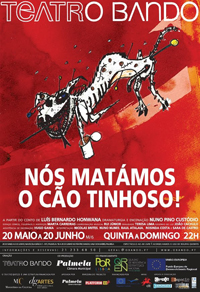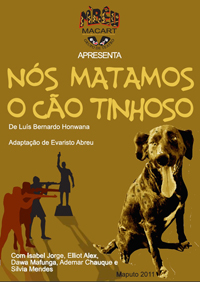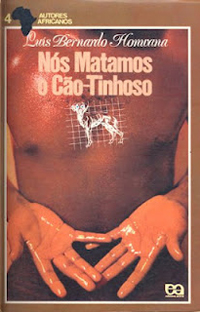Luís Bernardo Honwana (b. 1942)
Dossier MZ-0056 [part 5]
![]()
Luís Bernardo Honwana was born in 1942 in the colonial capital Lourenço Marques into a family of high achievers. The publication of his collection of short stories Nós Matámos o Cão Tinhoso in 1964, when he was only 22 years old, provoked a storm of outrage among right-wing Portuguese settlers, with the ultra-conservative critic Rodrigues Júnior accusing him of a ‘lack of humility’ and of using language made up of obscenities offensive to decency.
Other critics, however, praised him for having captured demotic Mozambican patterns of speech. Honwana has tinkered with the text of his stories in some of the later Mozambican editions of the book. The book – a collection of stories told from varying narrative viewpoints – exercised a massive influence on the subsequent generation of Mozambican prose writers, and earned «Luís Bernardo» as he is universally recognised, a place in his country’s literary pantheon. Nós Matámos o Cão Tinhoso has been translated into several languages and has been produced in the theatre.
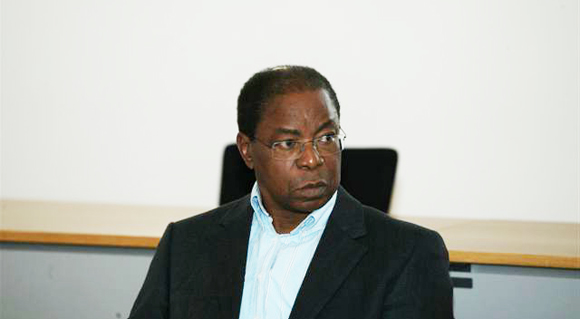
Above: Luís Bernardo Honwana in a serious mood. Honwana is considered an iconic figura in the development of Mozambican literary prose style; he has also held a series of senior government appointments and has worked for UNESCO.
Honwana has held a series of government political appointments as Secretary of State and later Minister of Culture. He also served on the Executive Board of UNESCO, and in 1995 entered into full-time employment with the organization as director of the South African office. He is now retired. Nós Matámos o Cão Tinhoso remains his only book-length publication.
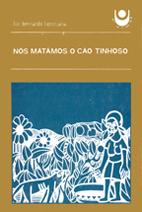
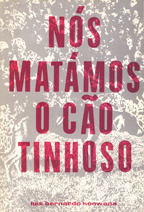
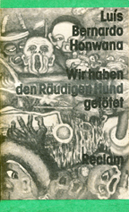
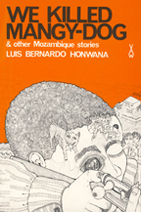
Above, left to right: the cover of the 1978 INLD edition; the cover of the 1984 INLD edition; the cover of the GDR (East German) translation Wir haben den Räudigen Hund getötet (Leipzig: Reclam, 1980), 112p.; the cover of the AWS English translation (London: Heinemann, 1969), 117p.
The publishing history of Nós Matámos o Cão Tinhoso is complex, and the Portuguese text is not fixed. There are translations into English, French, German and Russian. As far as MHN can tell – and what follows is not definitive, is subject to correction, and relies on information from Moser and Ferreira’s New Bibliography plus inspection of some of the volumes – the Portuguese editions are as follows:
◊ Original edition: Nós Matámos o Cão Tinhoso (Lourenço Marques: Publicações Sociedade de Imprensa de Moçambique, 1964), 135p. Illustrations by Bertina Lopes (1926-2012).
◊ Portuguese edition, with revisions. Nós Matámos o Cão Tinhoso: contos moçambicanos (Porto: Afrontamento, 1972), 147p.
◊ 2nd Mozambican edition: Nós Matámos o Cão Tinhoso (Lourenço Marques: Académica, 1975), 124p. (Colecção «Som e Sentido»; no.7)
◊ New edition, labelled 2nd ed., revised by the author: Nós Matámos o Cão Tinhoso (Maputo: INLD, 1978), 109p.
◊ Brazilian edition: Nós Matámos o Cão Tinhoso (São Paulo: Ática, 1980), 96p. (Coleção «Autores Africanos»; no.4)
◊ New edition, labelled 3rd ed.: Nós Matámos o Cão Tinhoso (Maputo: INLD, 1984), 109p.
◊ Another Portuguese edition: Nós Matámos o Cão Tinhoso (Porto: Afrontamento, 1988), 144 p.
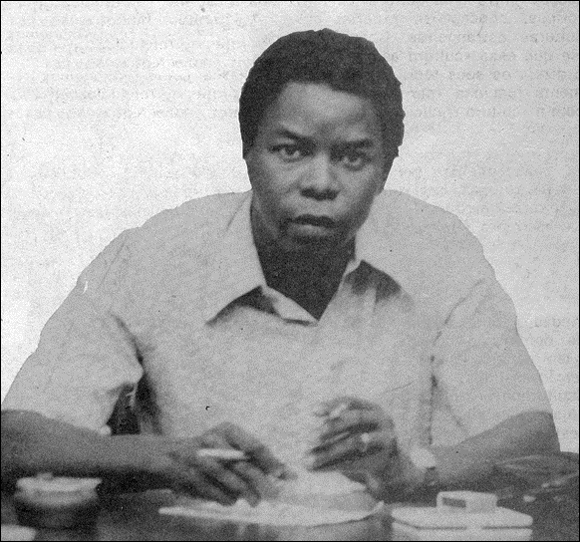
Above: Luís Bernardo Honwana, in a photograph possibly taken some time in the 1980s.
![]()
MHN Resources
◊ 22 November 1981
Luís Bernardo Honwana . Papel, lugar e função do escritor. Tempo [Maputo] no.580 (22 November 1981), p.54-60. In Portuguese. Click here to download a PDF file, size 2.5 Mb. The text of a lecture given by Honwana at UEM in September 1981.
◊ 31 January 1982
Luís Bernardo Honwana . Rosita, até morrer. Domingo [Maputo] (31 January 1982), p.18. In Portuguese. Click here to download a PDF file, size 363 kb. The text of a short story. The page includes a box, «Alguns dados sobre Luís Bernardo Honwana».
◊ 13 May 1984
Rodrigues Júnior and Malangatana Valente Ngwenya. Há vinte anos o «Cão Tinhoso» originava polémica. Domingo [Maputo] (13 May 1984), p.5. In Portuguese. Click here to download a PDF file, size 270 kb. When Honwana’s book of short stories came out in 1964, it was sharply criticised by the right-winger Rodrigues Júnior in the journal Mosaico; Malangatana then came to the defence of the work. Shortly afterwards, both Honwana and Malangatana were arrested by PIDE, but for different reasons. Domingo reprints extracts from the original texts of the debate.
◊ 13 June 1986
Cooperação na África austral: promover inserção da componente cultura, defende o nosso país na reunião de ministros em Lusaka. Notícias [Maputo] (13 June 1986). In Portuguese. Click here to download a PDF file, size 238 kb.
◊ November 1986
Fátima Mendonça. Luís Bernardo Honwana. Domingo [Maputo] (November 1986). In Portuguese. Click here to download a PDF file, size 1.1 Mb. A short biographical sketch of Luís Bernardo Honwana. One of the series «Ficha de Leitura A/Z».
◊ 23 November 1986
Maria Lúcia dal Farra . A identidade de um certo olhar infantil. Tempo [Maputo] no.841 (23 November 1986), p.42-43. In Portuguese. Click here to download a PDF file, size 462 kb.
◊ 11 April 1987
Mozambique minister to open book fair. Herald [Harare] (11 April 1987). In English. Click here to download a PDF file, size 63 kb.
◊ 19 November 1989
Irene Mendes. A raiva de Isaac Zita ou Dina de L. B. Honwana? Tempo [Maputo] (19 November 1989 ). In Portuguese. Click here to download a PDF file, size 843 kb. Makes the claim that the story «A Raiva de Isaac Zita é nem mais nem menos que a cópia em ponto pequeno do Dina de Luís Bernardo Honwana». Zita’s book was published posthumously.
◊ 13 August 1991
Pela Universidade de York, Luís Bernardo Honwana é doutor honoris causa. Notícias [Maputo] (13 August 1991). In Portuguese. Click here to download a PDF file, size 107 kb.



![Aluka: Struggles for Freedom [subscription required] Struggles for Freedom](imgs/aluka_200.png)




